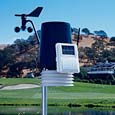
|

|

|
The Star-Spangled Banner—Francis Scott Key, 1814 O say, can you see, by the dawn's early light,
What so proudly we hail'd at the twilight's last gleaming?
Whose broad stripes and bright stars, thro' the perilous fight,
O'er the ramparts we watch'd, were so gallantly streaming?
And the rockets' red glare, the bombs bursting in air,
Gave proof thro' the night that our flag was still there.
O say, does that star-spangled banner yet wave
O'er the land of the free and the home of the brave?
On the shore dimly seen thro' the mists of the deep,
Where the foe's haughty host in dread silence reposes,
What is that which the breeze, o'er the towering steep,
As it fitfully blows, half conceals, half discloses?
Now it catches the gleam of the morning's first beam,
In full glory reflected, now shines on the stream:
'Tis the star-spangled banner: O, long may it wave
O'er the land of the free and the home of the brave!
And where is that band who so vauntingly swore
That the havoc of war and the battle's confusion,
A home and a country should leave us no more?
Their blood has wash'd out their foul footsteps' pollution.
No refuge could save the hireling and slave
From the terror of flight or the gloom of the grave:
And the star-spangled banner in triumph doth wave
O'er the land of the free and the home of the brave.
O thus be it ever when free-men shall stand
Between their lov'd home and the war's desolation;
Blest with vict'ry and peace, may the heav'n-rescued land
Praise the Pow'r that hath made and preserv'd us a nation!
Then conquer we must, when our cause it is just,
And this be our motto: “In God is our trust!”
And the star-spangled banner in triumph shall wave
O'er the land of the free and the home of the brave!
On Sept. 13, 1814,
Francis Scott Key visited the British fleet in Chesapeake Bay
to secure the release of Dr. William Beanes, who had been captured after the burning of Washington, DC. The release was secured, but Key was detained on ship overnight during the shelling of Fort McHenry, one of the forts defending Baltimore.
In the morning, he was so delighted to see the American flag still flying over the fort that he began a poem to commemorate the occasion. First published under the title “Defense of Fort M'Henry,” the poem soon attained wide popularity as sung to the tune “To Anacreon in Heaven.” The origin of this tune is obscure, but it may have been written by John Stafford Smith, a British composer born in 1750. “The Star-Spangled Banner” was officially made the national anthem by Congress in 1931, although it already had been adopted as such by the army and the navy.
For more information visit Information Please website
|



 Local Weather
Local Weather



 Local Weather
Local Weather